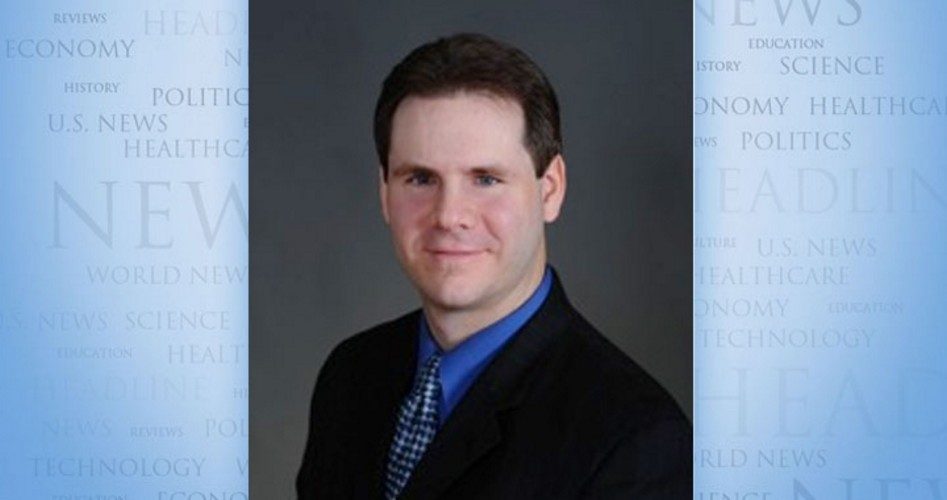
“Why can’t the English teach their children how to speak?!” asked (sang, actually) Professor Henry Higgins in the old play My Fair Lady. Today we could wonder likewise about our culture:
Why can’t Americans teach their children how to speak — or write?
One reason is that not only do few among even the “intellectual” class really care about proper English usage, many are working feverishly to undermine standards.
Of course, it’s not at all surprising that in an age wherein people think “truth” is relative and sex is malleable, language “rules” would be disposable. But there still is, here and there, a lonely keeper of the flame. Enter one Michael Dirda, who recently took up the cudgels for linguistic rectitude.
Writing at The Washington Post, Dirda informs that he’s “a stickler for correct English.” He then states that because of this,
I should have been wary when I picked up Anne Curzan’s “Says Who? A Kinder, Funner Usage Guide for Everyone Who Cares About Words.” “Funner” [which] provocatively signals that this isn’t a book for someone, like me, who once devoted his days and nights to Robert Graves and Alan Hodge’s “The Reader Over Your Shoulder,” William Strunk and E.B. White’s “The Elements of Style,” Theodore M. Bernstein’s “The Careful Writer,” and William Zinsser’s “On Writing Well.” Instead, “Says Who?” pointedly aims to defuse common anxieties over what is “proper” and “improper” usage.
To do this, Curzan, dean of the College of Literature, Science and the Arts at the University of Michigan, contends that virtually every grammar or vocabulary no-no you learned from Miss Thistlebottom is wrong or out of date…. [Now,] it would seem, almost anything goes. You can use “like” instead of “as” and “as if,” “who” instead of “whom,” even “irregardless,” regardless of the mute scorn of linguistic “grammandos.”
Of course, Curzan has the wind, though it’s an ill one, at her back. With journalists and activists asking questions such as “Are You Asking Me To Talk The ‘Right’ Way Or The ‘White’ Way?” and then concluding, “Turns out my childhood grammar lessons were actually classes on white supremacy,” dumbing down the language is de rigueur. This gets at the perils of playing fast and loose with standards:
It’s all just fun and games, until the cultural devolutionaries have been allowed to completely reshape language and you find your nation approaching Tower of Babel status — or find yourself shackled by 1984-like Newspeak.
The response here is predictable and, frankly, a bit stale. As Dirda also writes:
Curzan repeatedly emphasizes that language evolves, that we should welcome change, that new words express new ideas and thoughts…. Yet rules define any game. Without them, games wouldn’t even exist. Similarly, the traditional principles of sentence structure, verb agreement and even spelling ensure effective and clear communication. Grammar helps us to say what we mean and others to know rather than guess what we’re talking about.
While Dirda is right in what he says, he’s remiss in what he doesn’t. That is, “change” is a modern mantra. Yet as C.S. Lewis noted in The Screwtape Letters, change is meant to be a means to an end, not an end unto itself.
Metastasizing cancer in a once-healthy body or pestilence and famine in a previously vibrant civilization are change. The ascendancy of Hitler, Stalin, and Mao was change. Economic collapse would be change. Change must be qualitatively assessed. With language, therefore, we should ask:
When it changes, why is it changing?
(Another instructive question is: Who is the impetus behind it?)
Does the change satisfy a legitimate need? Or is it merely a function of laxity, destructive levity, or a nefarious agenda?
For example, regular readers may note that I’m not above introducing a neologism. But when I, let’s say, write “sexual devolutionaries” instead of “LGBTQ+ activists,” I’m not merely trying to be cool or catchy. Rather, since the side that defines the vocabulary of a debate tends to win the debate, I aim to use terminology that correctly frames what I consider a destructive movement.
In contrast, saying “the big fail” instead of “the big failure,” as is common today, may be justified as a “fun” innovation, but it’s just childish. It’s likewise with “the big reveal”; the word is revelation. Note here that this phenomenon, which serves to reduce the number of words actually used in everyday English, robs the language of richness.
Then there’s the embrace of ghetto-born lingo, such as the nauseating “My bad” in place of “My mistake.” None of this is surprising, of course, in our Peter Pan Complex time, wherein decades ago already 60-year-old men would sometimes sport earrings and ripped jeans trying to be hip (and they weren’t even the, you know, bee’s knees in their younger days). As Dirda puts it, all of this, this adult emulation of youth and even of yobs, “often indicates a somewhat pathetic nostalgie de la boue” (attraction to lowlife culture).
Most surely. For another example, realize that children’s clothing in the late 19th century would often be miniature versions of classy adult apparel; looking “grown up” was esteemed. In the early and mid 20th century, even gangsters would exhibit and cherish sartorial splendor. Now upper-class youths may emulate “gangsta’” fashions.
This all reflects a civilization in decline, when you aspire not higher but lower. Moreover, is it not easier for sexual devolutionaries to introduce Frankenstein-like lexical changes — i.e., a multitude of “transgender” pronouns — when language libertinism has already become the norm?
But, hey, the norm just isn’t what it used to be. As Professor Higgins put it in his musical complaint, use “proper English and you’re regarded as a freak.”

